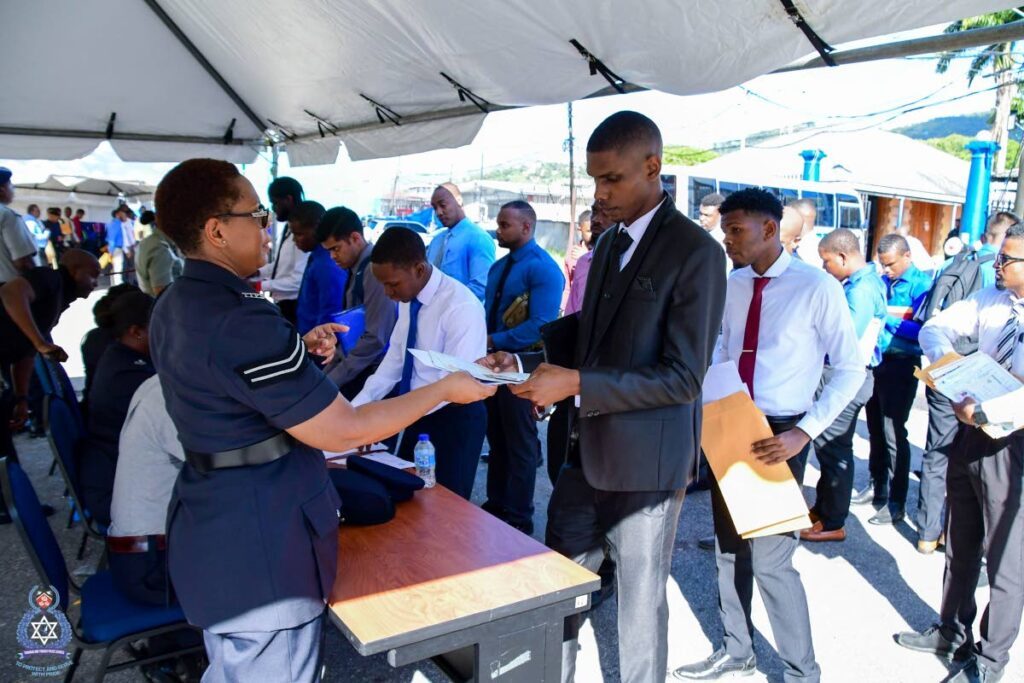Issues of national security

SAMUEL B HOWARD
THE RECENT ruling in our courts with reference to the height policy in recruiting police officers poignantly demonstrates how urgently the country's Constitution needs revision.
Additionally, the crime surge, particularly gun-related crime, strongly supports the idea of a radically changed approach to policing.
Increasingly, we have resorted to reliance on legal resolution of these fundamental issues through our courts and existing law. While court rulings may conform with existing law, the unresolved issues remain. There is urgent need to understand the evolution of societal systems and specialisation of services and their impact on efficiency.
Reliance on the existing legality of the action in many instances is both dysfunctional and counterproductive. The time is now for us to have a second look.
Perhaps we may recognise that judicial rulings when viewed in the context of uniformed services such as customs, immigration, nursing, prisons, army, coast guard and other protective services, and indeed every public service where uniforms are the distinguishing symbols and become flawed.
A uniform is intended as a distinguishing badge or symbol. It symbolises that a member of the group agrees to adhere to specific terms and conditions that distinguish them from the rest of society.
Of course such terms are consistent with and are within the boundaries of what is normally referred to as fundamental human rights. Accordingly, where specific requirements govern admission to the group, then clearly the court's ruling may appear to be misguided.
Should this principle be acknowledged, the legal ruling effectively compromises the fundamental principles of specialisation of services and confronts the absurdity of a 40-hour work week, overtime and special rates for Sundays and public holidays, etc in certain specific circumstances.
Consider: will armed forces during a conflict down their arms to celebrate a holiday or after having worked 40 hours? These basic issues assist us in understanding the meaning of uniforms.
In directing our attention to gun-related crime, we are informed that the exponential increase in available arms and ammunition stems from the saturation of the domestic market in one of our northern and dominant trading partners. Exports remain the avenue for growth and our relatively unsecured borders facilitate both legal and illegal access.
The illicit drug trade remains an easy avenue and fuels the lucrative arms and ammunition industry. Accordingly, both sides are actively encouraged to adopt the misguided platform that superior quantitative and qualitative capability provide advantage. This manifests itself in the disastrous consequences that are now playing out daily in TT.
The implication here is that there is a need for improved border security. However, this can only be accomplished through fundamental change in the apparatus of the country's national security.
Finally, our approach to policing has been inappropriately placed. We police events; the need is to make the radical change and refocus on policing communities. The difference between these two policies should be evident.
Community policing allows the citizenry to mount events in their respective communities without recourse to specialised conditional requirements, all of which are simply mechanisms intended to alert security forces of unintentional outcomes that may arise. Event policing simply seeks to manage unintended outcomes when events are mounted.
There is abundant empirical evidence gathered in many different jurisdictions that demonstrates that policing communities is far more efficient in both cost and effectiveness when appropriately resourced (human, physical and financial).


Comments
"Issues of national security"